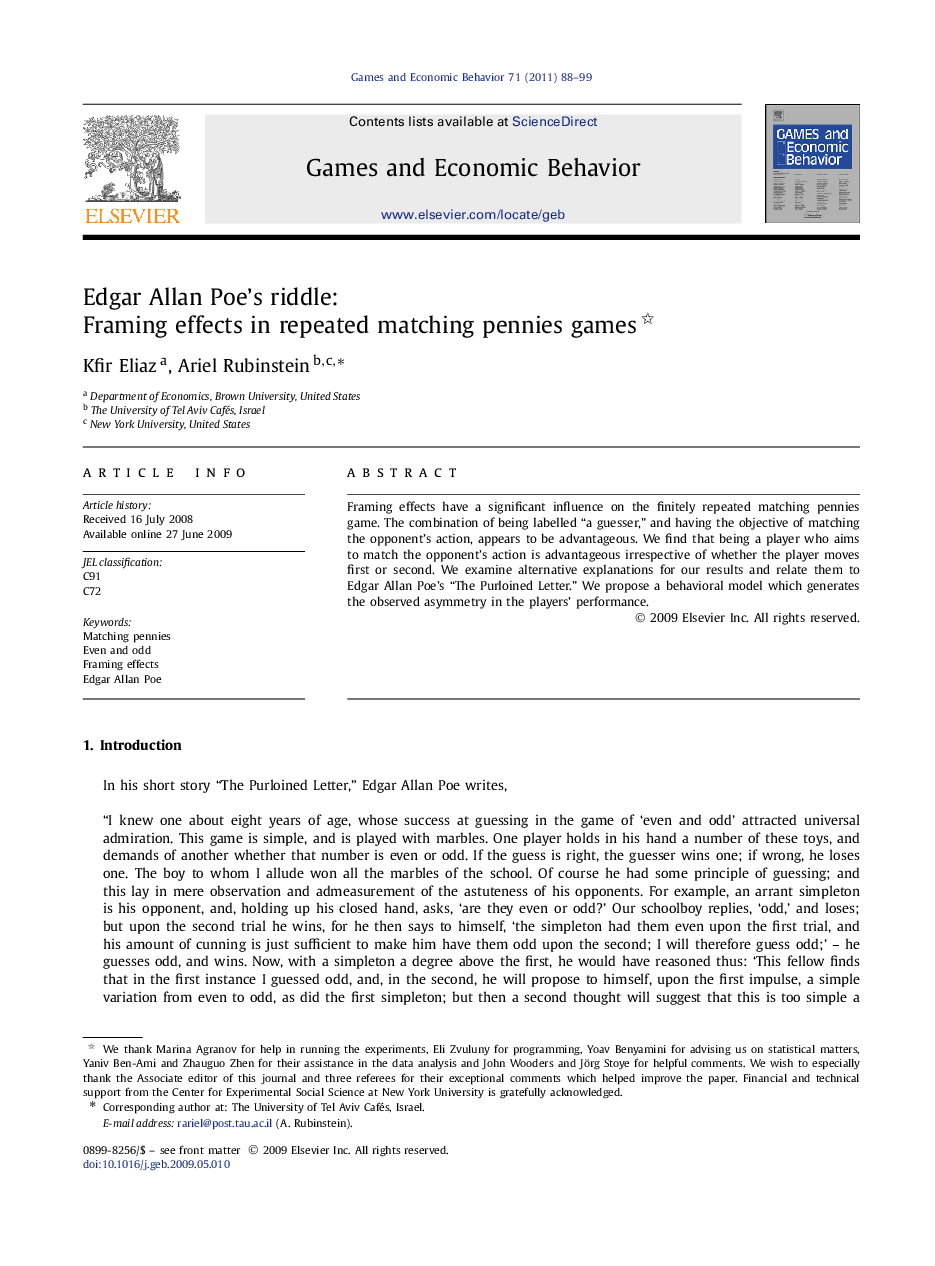| Article ID | Journal | Published Year | Pages | File Type |
|---|---|---|---|---|
| 5072351 | Games and Economic Behavior | 2011 | 12 Pages |
Abstract
Framing effects have a significant influence on the finitely repeated matching pennies game. The combination of being labelled “a guesser,” and having the objective of matching the opponent's action, appears to be advantageous. We find that being a player who aims to match the opponent's action is advantageous irrespective of whether the player moves first or second. We examine alternative explanations for our results and relate them to Edgar Allan Poe's “The Purloined Letter.” We propose a behavioral model which generates the observed asymmetry in the players' performance.
Related Topics
Social Sciences and Humanities
Economics, Econometrics and Finance
Economics and Econometrics
Authors
Kfir Eliaz, Ariel Rubinstein,
